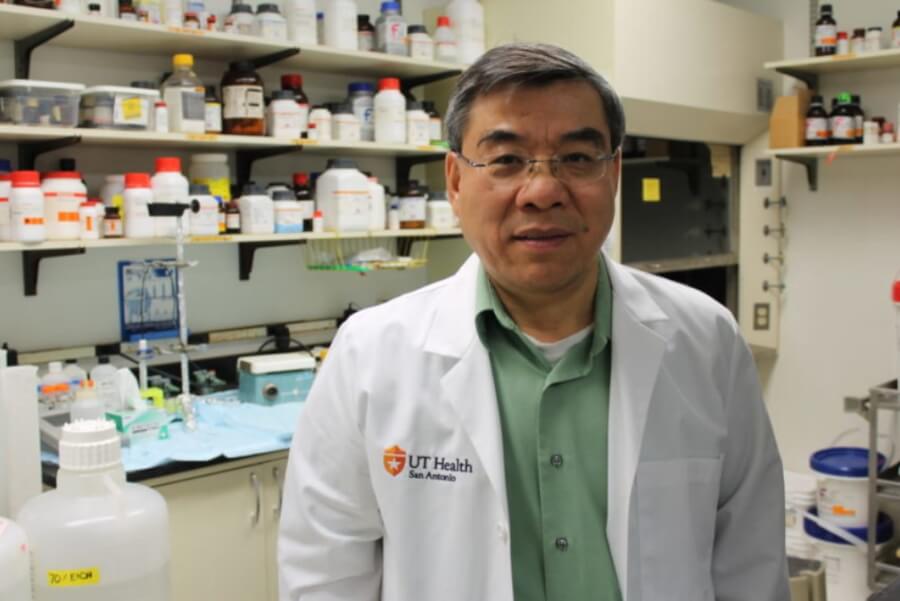Vaccines for this infection have been challenging to produce
SAN ANTONIO (Dec. 13, 2022) — The University of Texas Health Science Center at San Antonio has granted an exclusive global license allowing an Ohio biopharmaceutical company to develop university research discoveries into a novel oral vaccine for chlamydia.
According to the U.S. Centers for Disease Control and Prevention (CDC), chlamydia is the bacterial sexually transmitted infection most frequently reported in the U.S. with 1.6 million cases documented in 2020. If left untreated, chlamydia may cause infertility, ectopic pregnancy and pelvic inflammatory disease. A vaccine against genital infections would prevent these complications, particularly in younger at-risk populations.

Guangming Zhong, PhD, of the Joe R. & Teresa Lozano Long School of Medicine at UT Health San Antonio, leads the research team. Exposing the gastrointestinal (GI) tract to chlamydia protected against subsequent infection in the genital tract and other tissues, Zhong’s lab found. Conversely, if the genital tract was the site of initial chlamydia exposure, the genital chlamydia spread to other tissues and worsened in the genital tract. Multiple papers in research journals chronicled these findings.
“Vaccines against chlamydia infection have been challenging to produce,” Zhong said. “Our accidental discovery about the benefits of chlamydial colonization in the GI tract has vaccine implications, because once the bacteria are established in the gut, they don’t spread.”
The protection by initial gut exposure is robust and across tissues, the team showed. Protected sites include the genital tract and the lungs, said Zhong, whose faculty appointment is in the Department of Microbiology, Immunology and Molecular Genetics.
The license agreement with Blue Water Vaccines Inc., based in Cincinnati, enables the company to pursue development of a live, attenuated, oral chlamydia vaccine candidate discovered in the Zhong laboratory. This potential vaccine utilizes a weakened chlamydia strain called Chlamydia muridarum.
Terms of the licensing agreement were not disclosed. The Office of Technology Commercialization at UT Health San Antonio assisted the Zhong laboratory throughout the licensing process and with acquisition of published patents on the research discoveries. Intellectual property emanating from laboratories at UT Health San Antonio is the property of The University of Texas System Board of Regents.
The University of Texas Health Science Center at San Antonio (UT Health San Antonio), a primary driver of San Antonio’s $44.1 billion health care and biosciences sector, is the largest research institution in South Texas with an annual research portfolio of $360 million. Driving substantial economic impact with its six professional schools, a diverse workforce of 7,900, an annual operating budget of $1.08 billion and clinical practices that provide 2.6 million patient visits each year, UT Health San Antonio plans to add more than 1,500 higher-wage jobs over the next five years to serve San Antonio, Bexar County and South Texas. To learn about the many ways “We make lives better®,” visit UTHealthSA.org.
Stay connected with The University of Texas Health Science Center at San Antonio on Facebook, Twitter, LinkedIn, Instagram and YouTube.
Share This Article!
